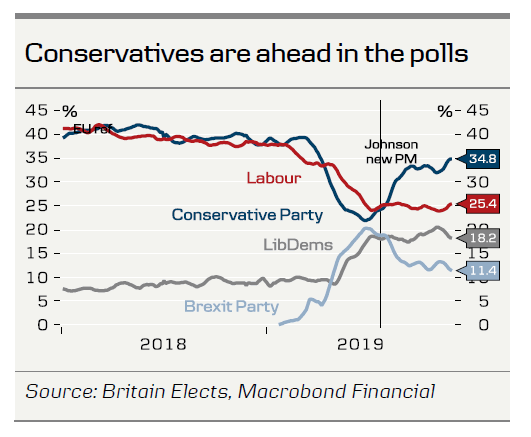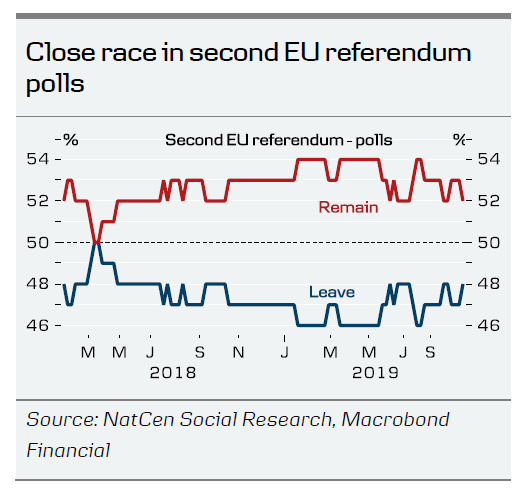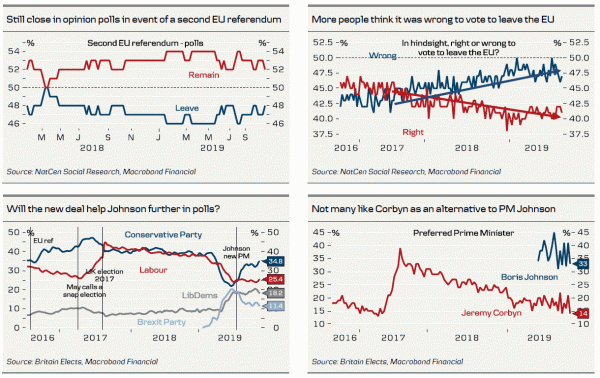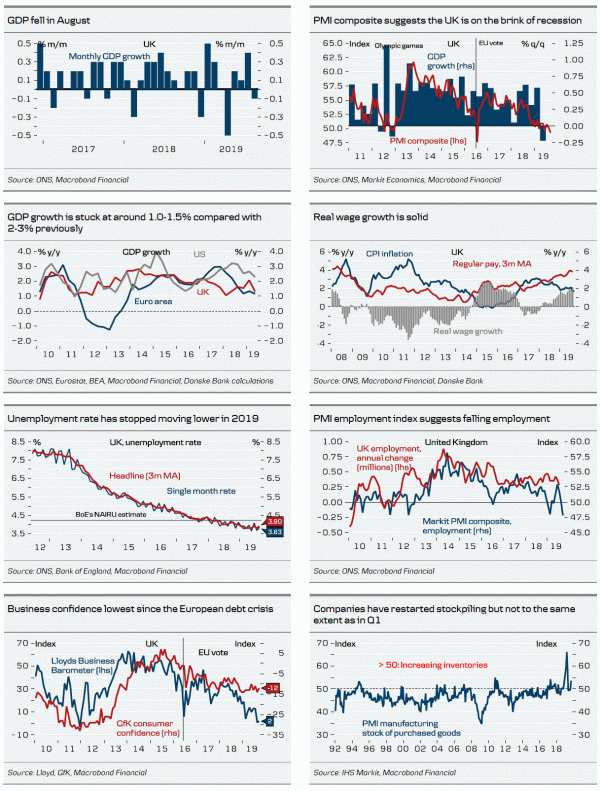EU27 set to grant the extension but disagreement on length
PM Johnson won a vote on his Brexit deal in principle but still ended up losing. The Brexit deal passed the second reading but the House of Commons rejected to spend only three days debating and voting on the deal. As a result, PM Johnson put the legislative work on halt. This means that Brexit is not going to happen on 31 October, as there is not enough time for ratification in both the House of Commons and the European Parliament. This is actually in line with what we have been calling for since April (although it was not a high conviction call back then), see Brexit Monitor: “See you in October”, 11 April.
So what now? British politics is unpredictable as ever. First and foremost, the ball is once again in the EU’s court, as the EU leaders now need to agree on whether to grant the UK an extension. We do not think the EU leaders will oppose an extension but they disagree on for how long. EU Council President Donald Tusk seems to prefer granting the extension until 31 January (as suggested by the UK), see Twitter, but France’s President Macron thinks the extension should be much shorter, perhaps even just a few days, according to Reuters. PM Johnson is not allowed to refuse any offer the EU may present to him, according to the Brexit Delay Bill. The extension will likely be flexible so it can be terminated early if the UK passes the Brexit deal.
The next question is how the British politicians will spend the time. We see two ways forward. Either we are heading for a general election very soon or PM Johnson will continue the legislative work on implementing his deal into British law. If PM Johnson resumes the legislative work, it could be either successful and the UK would then soon leave the EU or it could fail (perhaps because of ‘soft Brexit’ amendments like a permanent UKwide customs union with the EU), which would also lead to a general election.
It is difficult to predict what is most likely but we are leaning towards an election, as the lack of trust in PM Johnson makes it difficult for him to pass the deal. However, Labour MPs are divided on whether to support an election, as some fear to lose their seats and that PM Johnson may win a landslide victory. LibDems and SNP both seem to support it. PM Johnson cannot call the election himself and needs either a two-third majority dissolving Parliament or losing a no confidence vote by simple majority. The latest an election can be held this year is 12 December, otherwise we are heading for a January election.
We expect an election to lead us to the Brexit end game. If PM Johnsons wins, he can implement his Brexit deal without too many problems. If the opposition wins, it would most likely call a second EU referendum. There is unfortunately also the possibility that Parliament will remain in a deadlock after an election. Regardless, it is difficult to see a path to a no-deal outcome anymore, which also explains why a lot of negativity has been priced out of the GBP.
Unfortunately, it is very difficult to predict the outcome of a potential general election due to the voting system and it is not a given PM Johnson will win despite him being way ahead in the polls. Most seat projections were wrong in 2015 and 2017. If a second EU referendum is called, ‘remain’ is slightly ahead but not much




